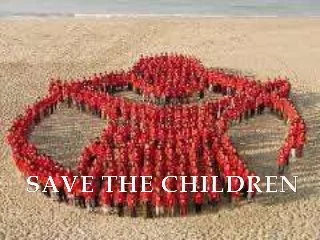IN commemoration of the 2022 World Immunisation Week, Save the Children International in Nigeria has called on the Federal and State governments and stakeholders at all levels to keep immunisation high on their sustainable development agenda as part of efforts to accelerate actions toward reducing and possibly ending death from vaccine preventable diseases, and to make vaccinated communities healthy, productive and resilient.
Already, global vaccination rates have dropped to levels not seen in a decade, with 3.5 million fewer children receiving vaccines in 2020 compared to 2019.
Also, the COVID-19 pandemic has contributed to disruption of immunisation services, leaving millions of children at great risk of missing out on critical vaccinations against measles, mumps, whooping cough, pneumonia and polio.
According to Shannon Ward, Interim Country Director, SCI, Nigeria: “Every child needs to be vaccinated against preventable diseases. These diseases can negatively impact quality of life and cause death. We welcome increased emphasis and training for health workers and community members on the many benefits of immunisation.”
Ward noted that this year, the World Immunization Week on 24- 30 April, themed: “Long Life for All”, aims to highlight the collective action needed, and to promote the use of vaccines to protect people of all ages against vaccine preventable diseases.
“This theme is apt as the world gradually recovers from the COVID-19 pandemic. This brings us another opportunity to enhance the collaboration of various stakeholders and interest groups including community, religious, and traditional rulers and private sector companies to contribute to improving health for all towards achieving Sustainable Development Goal 3.”
Amanuel Mamo, Director of Advocacy, Campaigns, Communication and Media, SCI in Nigeria said: “We urge the Government of Nigeria to support increase in domestic investment in the health sector to meet with 15 percent target of the Abuja Declaration (2001) and ensure that health spending improves child health services, including removing user fees, reducing non-financial barriers to accessing care, and prioritising primary health services, among others.
On zero-dose children he said it is particularly important because those who are reached with the first vaccine are highly likely to also receive remaining dosages.
“This week provides us an opportunity to increase public awareness about the importance of every person’s need and rights, including that of children, girls, women and people with disabilities, to be protected from vaccine-preventable diseases.
We call for increased coordination, collaboration with and support of stakeholders and the government to be able to deliver high-quality, timely, free and accessible immunization programmes at all levels.
READ ALSO: Iran: US fueling Afghan insecurity as part of ethnic-religious plot – Ghalibaf
“Save the Children supports the need for accelerating vaccine coverage by supporting Gavi’s 2020 replenishment and ensuring investment drives for more equitable vaccination coverage, and to improve vaccine affordability, especially for children and other vulnerable groups.
“The organisation believes that immunisation saves millions of lives and it is recognised as one of the world’s most successful health interventions. Hence, Save the Children supports the need for accelerating vaccine coverage by supporting Gavi’s 2020 replenishment and ensuring investment drives for more equitable vaccination coverage, and to improve vaccine affordability, especially for children and other vulnerable groups.”
A leading child rights organisation headquartered in the UK with offices in over 120 countries around the world, SCIave the Children is in Nigeria and around the world, giving children a healthy start in life, the opportunity to learn and be protected from abuse.
Through the campaign, called, Girls’ Education, SCI is aiming to empower Nigerian girls and women to have a “sustainable tomorrow”, become resilient, and make informed decisions on issues that affect them, including early, child, and forced marriages.













